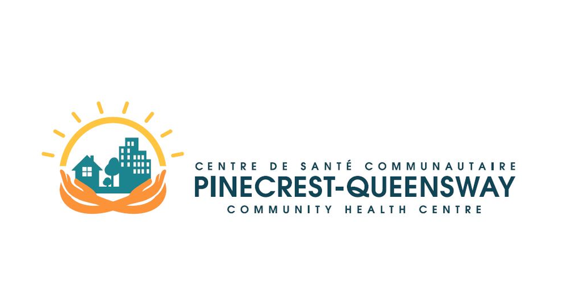Journey to Enhanced Cultural Competence in Community Healthcare
Discover how PQCHC transformed their organization by enhancing cultural competence to better serve their diverse community.

The Client
Pinecrest-Queensway Community Health Centre is one of Ottawa’s largest community health organizations, serving over 20,000 clients annually.
With a diverse team of over 300 staff and numerous volunteers, PQCHC provides an extensive range of services, including primary health care, mental health support, community outreach, and social services. Operating multiple locations across the city, PQCHC embraces diversity in all its forms, ensuring that its services are culturally sensitive and tailored to meet the unique needs of Ottawa’s varied communities.
The Challenge
PQCHC serves a highly diverse community, encompassing a wide range of cultural, linguistic, and socioeconomic backgrounds. This diversity is a vital aspect of the community’s identity, bringing together individuals with varying perspectives, traditions, and needs. However, this also presents a significant challenge for PQCHC in ensuring that their services are inclusive, culturally sensitive, and accessible to everyone.
Cultural Competence: To provide effective and respectful care, it is essential for PQCHC to understand and respond appropriately to the cultural contexts of their clients. This involves recognizing cultural differences, preventing misunderstandings, and fostering an inclusive environment.
Health Disparities: Different cultural groups may have distinct health beliefs and practices, which can affect how they perceive health care and adhere to medical advice. Addressing these disparities is crucial for improving health outcomes.
Community Trust: Building and maintaining trust with a diverse client base requires demonstrating cultural competence and respect. When community members feel understood and valued, they are more likely to seek and continue using health services.
Effective Communication: Language barriers and cultural differences can hinder communication between healthcare providers and clients. Enhancing cultural competence helps in overcoming these barriers, ensuring clearer and more effective interactions.

Our Approach
Situational Assessment
We began with a situational assessment to gather insights into the current state of cultural competence at PQCHC. This included:
- Surveys: Distributed to all staff members to collect data on their perceptions and experiences related to cultural competence within the organization.
- Interviews: Conducted one-on-one interviews with each team member to discuss their assessment results, personal challenges, and their work with the communities they serve. This helped to understand individual perspectives and experiences in detail.
Intercultural Development Inventory (IDI) Assessment
We administered the Intercultural Development Inventory (IDI) to measure the intercultural competence of both individuals and the group. The IDI is a 50-item questionnaire that provides profiles of an individual’s and group’s capability to shift cultural perspectives and adapt behavior toward cultural differences and commonalities.
- IDI Individual Profiles: Provided feedback to individuals about their engagement with cultural diversity and identified areas for personal development.
- IDI Group Profile: Offered insights into the collective intercultural competence of PQCHC’s leadership team, informing the design of targeted training and development efforts.
One-on-One Interviews
Following the IDI assessment, we held in-depth interviews with each team member to discuss their individual results. These conversations focused on:
- Assessment Results: Helping individuals understand their IDI profiles and the implications for their work.
- Personal Challenges: Identifying personal challenges related to cultural competence and how they affect interactions with colleagues and the communities served.
- Interpersonal Dynamics: Exploring how team members relate to one another and identifying opportunities to improve collaboration and mutual understanding.
Group Coaching and IDP Development
Based on the group IDI results, we conducted group coaching sessions to address collective challenges and opportunities for growth. These sessions included:
- Group Results Debrief: Explaining the group’s IDI profile and discussing strategies to enhance intercultural competence.
- Interactive Workshops: Facilitating structured conversations and activities that promoted shared learning and collaboration.
- Individual Development Plans (IDPs): Assisting each team member in creating personalized development plans to guide their intercultural competence growth.
The Impact
The comprehensive approach to fostering cultural competence at PQCHC yielded significant positive outcomes:
- Enhanced Understanding: Team members gained a deeper understanding of their own cultural perspectives and those of their colleagues, leading to more effective and empathetic interactions.
- Improved Collaboration: The honest and sometimes challenging conversations during the group coaching sessions fostered a stronger sense of trust and collaboration within the team.
- Personal and Professional Growth: The IDP process empowered individuals to take ownership of their development, resulting in tangible improvements in their intercultural competence.
- Organizational Readiness: PQCHC’s leadership and staff are now better equipped to navigate cultural differences and leverage diversity as a strength, enhancing their ability to serve the community effectively.
Overall, the IDI assessment and the subsequent developmental activities have positioned PQCHC to create a more inclusive and culturally competent organization, ultimately leading to better outcomes for the community they serve.

